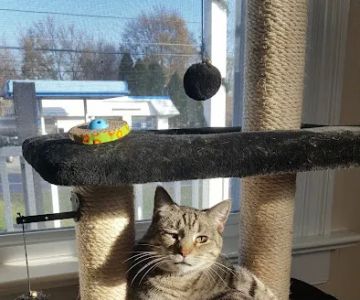How to Care for a Gerbil as a Pet: A Comprehensive Guide for New Owners
- Overview of Gerbils as Pets
- Creating the Perfect Habitat for Your Gerbil
- What to Feed Your Gerbil for Optimal Health
- Providing Proper Exercise for Your Gerbil
- Gerbil Healthcare: Keeping Your Pet Healthy
- Common Gerbil Care Issues and How to Address Them
- Explore More Gerbil Care Resources
Overview of Gerbils as Pets
Gerbils are small, social rodents that make fantastic pets for both beginners and experienced pet owners. Known for their playful nature, easy care, and low maintenance, gerbils are ideal for families and individuals who want a fun and interactive pet. If you’re wondering how to care for a gerbil as a pet, this guide will provide you with all the essential information to keep your furry friend happy and healthy.
Creating the Perfect Habitat for Your Gerbil
Before bringing a gerbil into your home, it’s important to set up a suitable habitat. Gerbils are highly active and need a safe, secure environment that allows them to burrow and explore. Here’s what you’ll need:

2000 Holcomb Bridge Rd Suite 130, Roswell, GA 30076, USA
See Details1. Gerbil Cage or Tank
Choose a spacious cage or aquarium with a solid floor. Gerbils are burrowers, so ensure that the tank has at least 10 gallons of space per gerbil. The tank should have a secure lid to prevent escapes, as gerbils are excellent climbers.
2. Bedding
Provide your gerbil with bedding such as aspen wood shavings or paper-based bedding. Avoid cedar or pine bedding, as it can be harmful to your pet’s respiratory system. Gerbils love to dig and burrow, so make sure there’s plenty of bedding to allow for this natural behavior.
3. Accessories and Hiding Places
Gerbils appreciate having a few hiding places and tunnels where they can rest and play. Provide a small cardboard box, paper towel tubes, or wooden tunnels to give your pet a sense of security and entertainment.
What to Feed Your Gerbil for Optimal Health
A well-balanced diet is essential for your gerbil’s health. Their diet should consist primarily of high-quality pellets, supplemented with fresh fruits, vegetables, and occasional treats. Here are the essentials:
1. Gerbil Pellets
Choose a high-quality gerbil pellet as the main component of their diet. These pellets provide the necessary nutrients and prevent selective eating, ensuring your pet gets a balanced diet.
2. Fresh Foods
Gerbils can enjoy small portions of fresh vegetables such as carrots, broccoli, and spinach. They can also have occasional fruit like apples and bananas, but avoid sugary fruits or citrus. Fresh water should always be available.
3. Avoid Harmful Foods
Avoid giving your gerbil sugary foods, chocolate, or foods that are high in fat. These can lead to obesity and other health problems.
Providing Proper Exercise for Your Gerbil
Gerbils are energetic and need ample exercise to stay healthy. Here's how you can keep your pet active:
1. Exercise Wheel
Install a small, solid-surfaced wheel in the cage for your gerbil to run on. Exercise wheels are essential for gerbils to burn off energy and stay in shape. Make sure the wheel is the right size to avoid strain on their back.
2. Out-of-Cage Time
Gerbils enjoy exploring outside of their cage, but always supervise them to prevent them from getting into dangerous situations. A gerbil-safe playpen or a small enclosed area works well for supervised exploration.
3. Tunnels and Climbing Structures
Adding tunnels, ramps, and climbing structures to your gerbil’s cage will encourage exploration and exercise. Gerbils love to climb and burrow, so the more options they have, the more likely they are to stay active.
Gerbil Healthcare: Keeping Your Pet Healthy
Gerbils are generally low-maintenance animals, but they do require regular healthcare and attention. Here’s how to maintain your gerbil’s health:
1. Regular Cleaning
Keep your gerbil’s cage clean by changing bedding and wiping down surfaces regularly. This helps prevent bacterial growth and keeps your pet’s environment hygienic.
2. Nail Care
Gerbils’ nails grow quickly and should be trimmed every few weeks. Use small animal nail clippers to gently trim the nails, or visit a vet for assistance if you’re unsure.
3. Vet Visits
If you notice any signs of illness, such as lethargy, a lack of appetite, or abnormal behavior, consult a veterinarian. Routine checkups help catch any potential issues early.
Common Gerbil Care Issues and How to Address Them
Although gerbils are hardy pets, there are a few common issues that owners should be aware of:
1. Excessive Chewing
Gerbils love to chew, which can sometimes result in damage to furniture or cage parts. Provide safe chewing options like untreated wood blocks or chew toys to keep them occupied.
2. Biting
Gerbils may nip or bite if they feel threatened. Always handle your pet gently and avoid sudden movements. If your gerbil is new, allow them time to acclimate before trying to hold them.
3. Cage Escapes
Gerbils are small and curious creatures, and they are great at escaping. Make sure your cage is securely closed and check for any potential gaps or weaknesses in the enclosure.
Explore More Gerbil Care Resources
If you’re interested in learning more about how to care for a gerbil as a pet, consider exploring additional resources, guides, and expert advice. To discover more about gerbil care and pet supplies, visit Hidden Brook Veterinary for helpful tips and recommendations.










